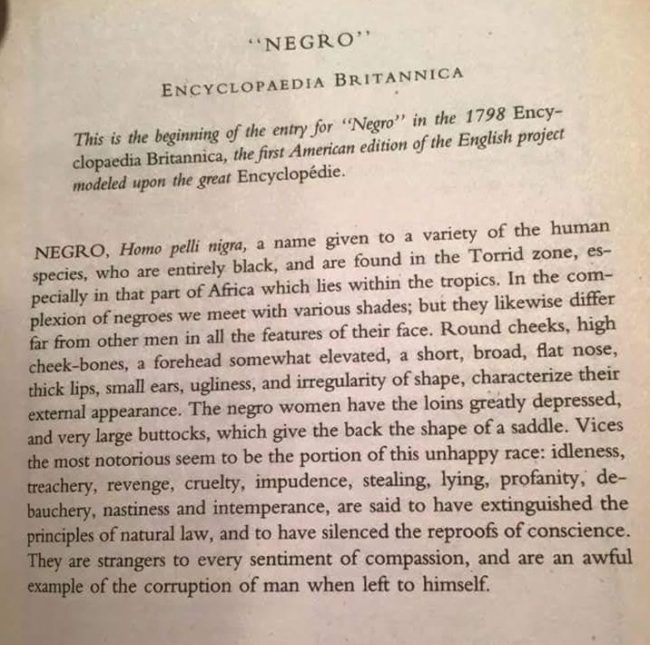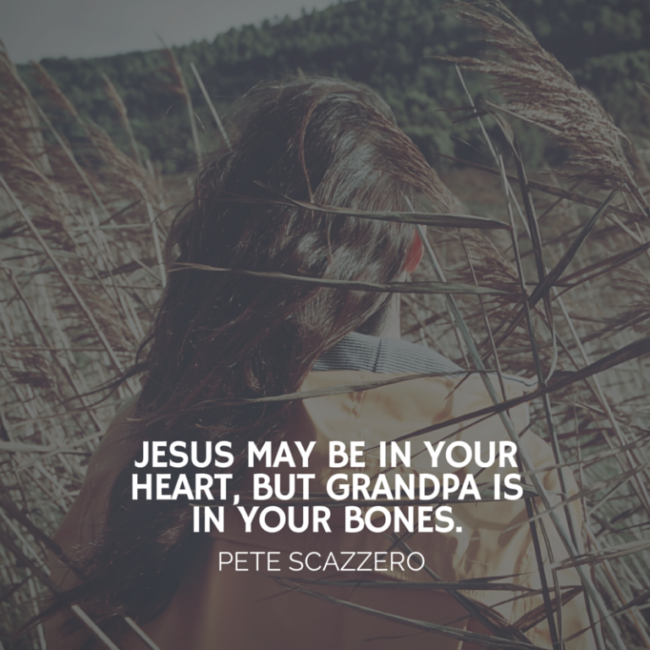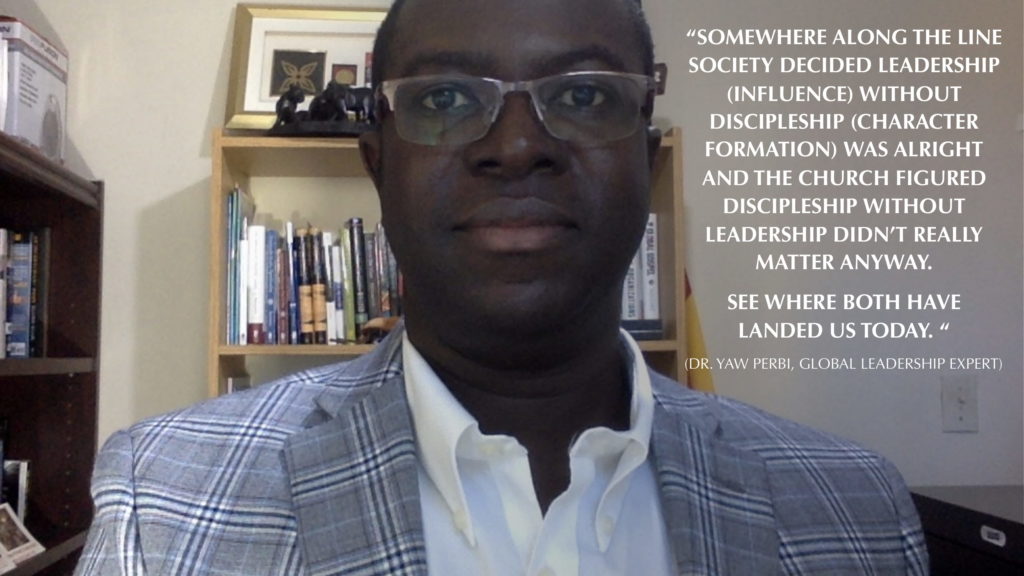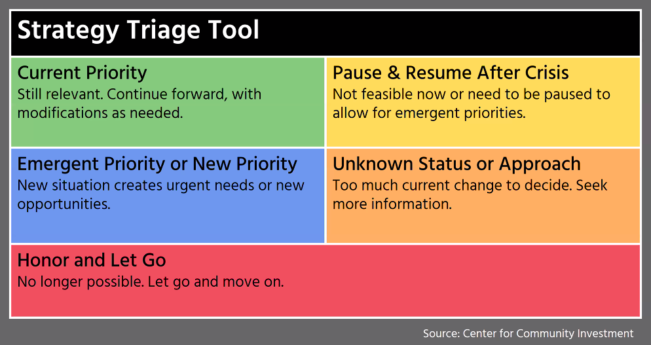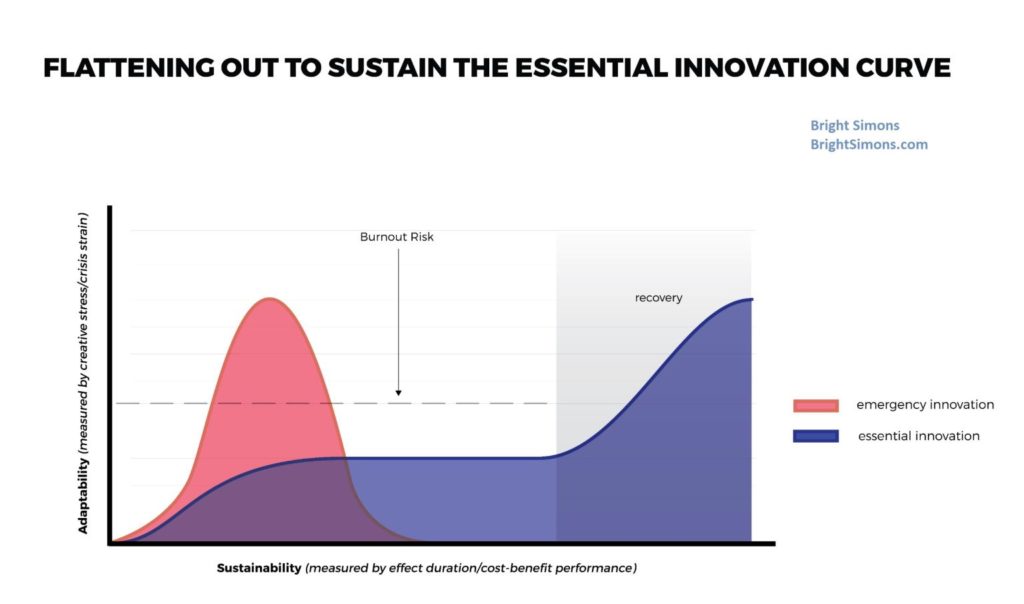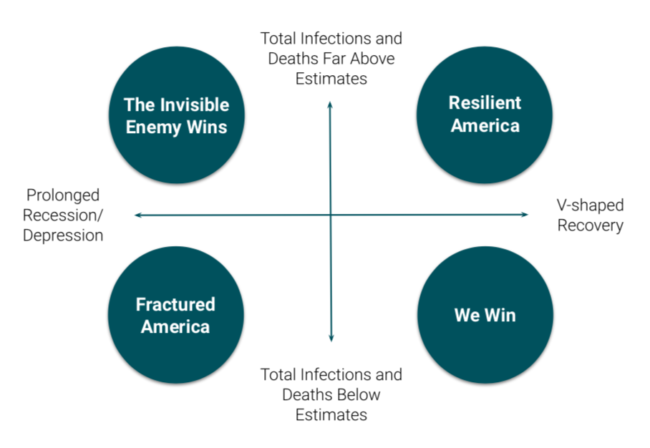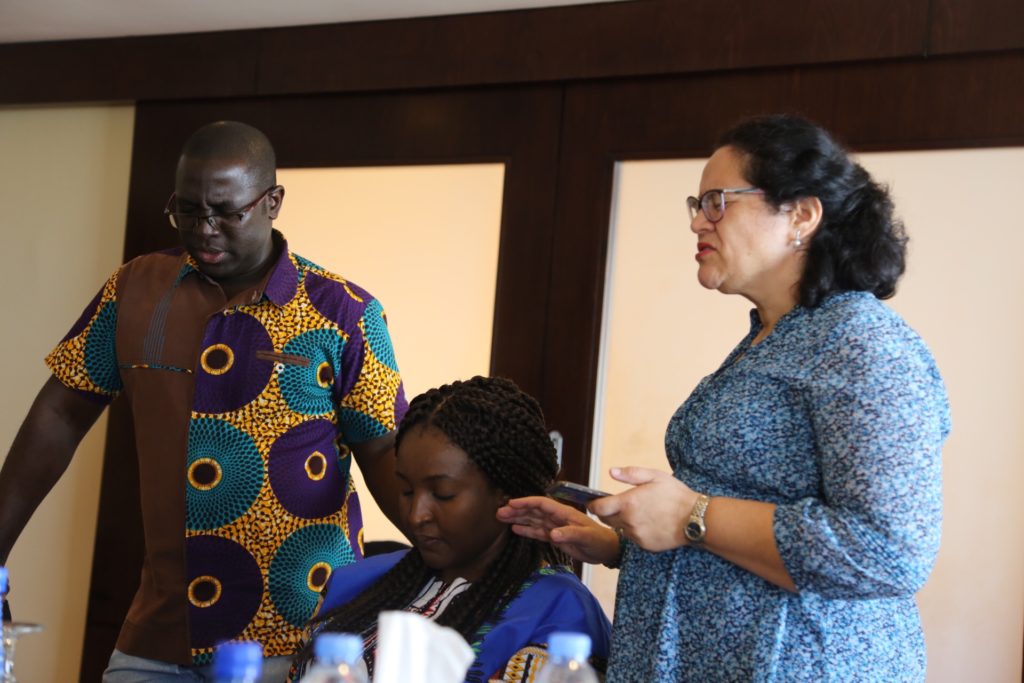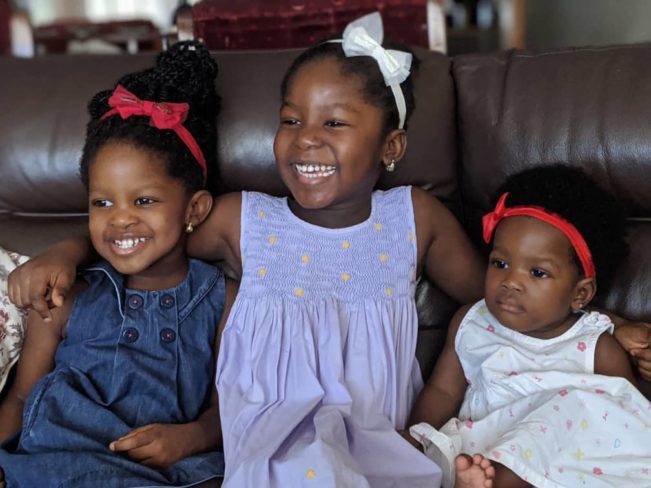How a Daily Meditation Practice Helps You Find Trust
You can coach countless clients by expanding your audience and moving your business online. You don’t need to have technical skills .
9 Simple Ways to Clear Negative Mental Energy
You can coach countless clients by expanding your audience and moving your business online. You don’t need to have technical skills .
Another Ordinary Black Man Downed by a Superior White Policeman: Is there not a root cause?
Mad I am. Have you seen the videos of the broad daylight murder of yet another unarmed Black man, George Floyd, by yet another White police officer, this time in Minneapolis? The officer literally knelt on the poor man’s neck till he died.
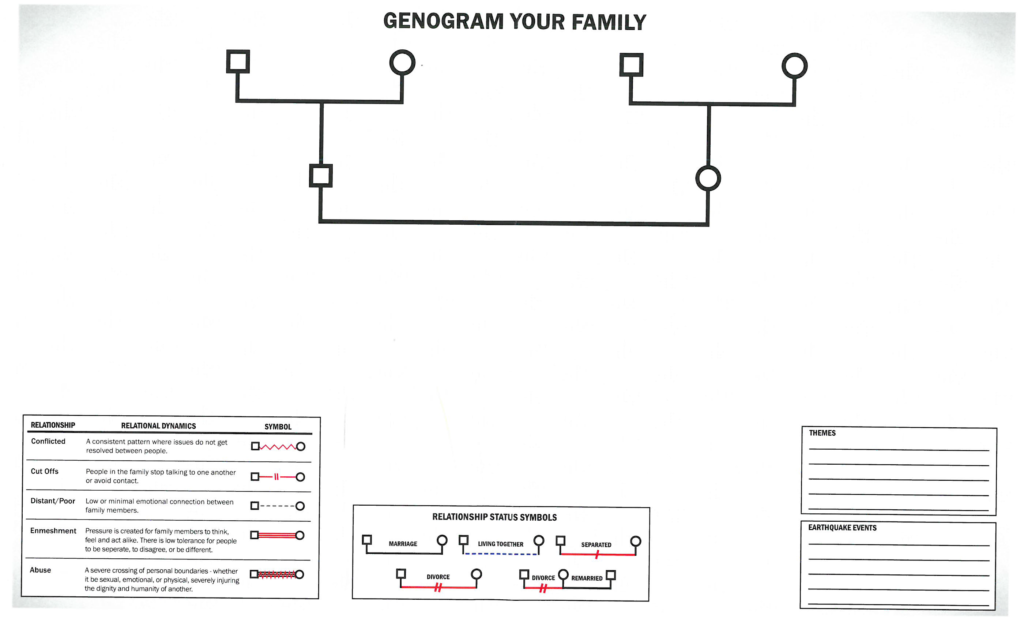
Blank sample to genogram your own family (courtesy: Pete & Geri Scazzero’s Emotionally Healthy Discipleship)
I’m in the middle of a transformative ‘Emotionally Healthy Spirituality’ course with Pete Scazzero (this is at least the third time I’m doing it). Incidentally in the very week we’re focusing on ‘Going Back to Go Forward,’ examining the deep-rooted attitudes, values, behaviours, patterns etc. in our genogram, this dastardly cycle of white police brutality on black lives comes up again; this time George Floyd’s in Minneapolis.
A genogram (pronounced: jen-uh-gram) is “a graphic representation of a family tree that displays detailed data on relationships among individuals. It goes beyond a traditional family tree by allowing the user to analyze hereditary patterns and psychological factors that punctuate relationships.” Biblically, we are affected by the being and doing of our forebears to the third and fourth generation. Meaning, those of us alive right now are exhibiting certain things, good and bad, blessing and cursing, that were sown by our relatives in the 1800s.
The deep rooted nature of this American problem of white-on-black violence leads me to think it is in the white person’s genogram, dating back to the era of colonialism and slavery. A white person (‘master’) unaware of this and put in a place of immense power, like a police officer, inadvertently and uncontrollably mets out brute and fatal force on his black ‘slave.’ It’s in the blood; it’s in the DNA, covertly usually.
Apart from pure demonic activity, this seems to be the only way I can begin to comprehend how a human being can delightfully kneel on the neck on another human and suffocate him to death (#icantbreathe), with hand in pocket and a smirk on his face.
Tell me if I’m going crazy, be honest, even crass, with me, especially if you are white and you call yourself my friend.
If you don’t care, you’re not my friend anyway. If you’re offended, feel free to fume awhile and let’s jaw-jaw when you cool down or unfriend me forever.
“But let justice roll on like a river, righteousness like a never-failing stream!”(Amos 5:24)
POST SCRIPT: MENTOR TO THE RESCUE
I got a response to my Genogram Theory of Systemic Racial Justice above from my Emotionally Healthy Spirituality mentor Pete Scazzero, via SMS, and it was in the affirmative: “…yes the murder of George Floyd is very much the result of that man’s GENOGRAM, the police department’s and the history of the USA.” Thank you sir! BAM!
POST SCRIPT: OF HEART AND BONES
These race issues are deep deep matters. If your kind of Christianity can’t engage this issue and bring a Gospel solution to it, you’ve got the wrong kind; it’s not worth following!
For Christians who want to quickly whisk this issue away with 2 Corinthians 5:17, remember that we are in a process of sanctification after we open our hearts to Jesus for a reason!
Don’t ignore your own genogram. If your great great great grandpa thought my great great great grandpa was a Homo pelli negra don’t take it lightly; it takes a deep work of the Gospel of grace and the Spirit of Truth to see me as a Homo sapiens 200-400 years later. Scazzero says it best: “Jesus may be in your heart, but grandpa is in your bones.”
Why Being an ‘African Christian’ isn’t an Oxymoron.
A friend and old school mate asked an ‘innocent question’ on Face Book: “Why is African Traditional Religion confused with wizardry or witchcraft?” Some of the responses I saw got my missiological juices going!
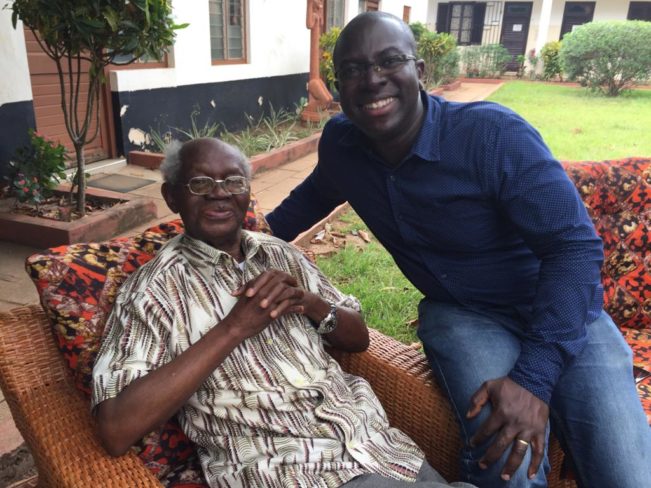
Hanging out with my late grandfather, Emeritus Prof. J.H. Kwabena Nketia, at the African Studies department garden at the University of Ghana
My grandfather, who was so well-eulogized in The New York Times when he passed away last year (March 2019), was so African that some people wondered how on earth he could be Christian! Even I used to wonder, with his close proximity to traditional folklore and hunter songs, familiarity with traditional palace protocols, committed transcription of Akan drum language and such. It was hard for me to decouple African traditions from ancestral and demonic worship. Being born and bred Evangelical, in my conversations with him I tried to figure out whether he actually had a personal relationship with Jesus Christ. Was he truly born again?
In the last couple of years as I’ve taken courses at the Akrofi-Christaller Institute for Theology Mission & Culture I have come to appreciate his way of being African and Christian, which the current rector of the institute, during his Evening of Remembrance sermon (see pg. 39) at the Great Hall of the University of Ghana, said that Grandpa epitomized. In fact, Prof. B.Y. Quarshie entitled his sermonette from Galatians 3:1-9 as “Fully African, Fully Christian.” After all, Prof. Nketia was the founding chancellor of Akrofi-Christaller, an accredited postgraduate degree-awarding institution, and continued for a decade, till he was about 95 years old. In his scholarly work in ethnomusicology I did not realize Grandpa was directly touching on missiology, documenting the different sights and sounds of the very “great multitude that no one could count, from every nation, tribe, people and language” that John the Revelator had a vision of, “standing before the throne and before the Lamb” (Revelation 7:9). “The music of Africa, like its language, is, so to speak, ‘ethnic-bound.’ Each society practices its own variant,” Grandpa said. Alas, this African Christian was doing holy work! As one colleague put it, and reported in The New York Times, “He showed that the African history of music was a sacred tradition revealed.”
1. THE GOSPEL CHALLENGES EVERY CULTURE
So back to Eliza’s question: “Why is African Traditional Religion confused with wizardry or witchcraft?” Good question! My first instinctive answer was, “There’s a thin line; that may be why.” Every culture has what is great about it (there are features/fingerprints of God all over) but also what is broken since Eden. Idolatry is one consequence of that brokenness, whether African, Mesopotamian or European culture. It’s actually hard to beat the many gods the Greeks and Romans (Europeans, remember?) had. Paul speaks to this issue not in an idol-ridden African village but at the Areopagus, in the heart of Greece as he gives his ‘TED Talk’:
So Paul, standing before the council, addressed them as follows: “Men of Athens, I notice that you are very religious in every way, for as I was walking along I saw your many shrines. And one of your altars had this inscription on it: ‘To an Unknown God.’ This God, whom you worship without knowing, is the one I’m telling you about. He is the God who made the world and everything in it. Since he is Lord of heaven and earth, he doesn’t live in man-made temples, and human hands can’t serve his needs—for he has no needs. He himself gives life and breath to everything, and he satisfies every need. From one man he created all the nations throughout the whole earth. He decided beforehand when they should rise and fall, and he determined their boundaries. His purpose was for the nations to seek after God and perhaps feel their way toward him and find him—though he is not far from any one of us. For in him we live and move and exist. As some of your own poets have said, ‘We are his offspring.’ And since this is true, we shouldn’t think of God as an idol designed by craftsmen from gold or silver or stone. God overlooked people’s ignorance about these things in earlier times, but now he commands everyone everywhere to repent of their sins and turn to him. For he has set a day for judging the world with justice by the man he has appointed, and he proved to everyone who this is by raising him from the dead” (Acts 17:22-31, NLT, emphasis mine).
The past is forgiven. God is now calling and commanding “everyone everywhere” to have a change of mind (repent) and turn towards him (convert)! All peoples, everywhere! Africans aren’t the only ones who have been called to turn away from idols to the one true God. All have sinned and fall short of the glory of God (Romans 3:23); all are in need of redemption. “All” means all including all, excluding none.
2. THE GOSPEL CHANGES EVERY CULTURE (BUT IS ALSO SHAPED BY IT)
As a missiologist, I was surprised how in the said Face Book discussion little credence was being given to the fact that the Gospel of Jesus Christ is for every nation, people group (ethnos), tribe and tongue. Do people just not know that or do they intentionally suppress that truth?
So while the Gospel challenges and changes every culture it is also remarkably shaped by every culture! Kenyan theologian John S. Mbiti said it best: “Christianity is always a beggar seeking food and drink, cover and shelter from the cultures and times it encounters in its never-ending journeys and wonderings.” True, some Westerners knowingly or ignorantly tried to Westernize (ostensibly ‘civilize’) our African peoples and that’s a shame (a very human thing to do—to believe what we have is best and others must conform) just as some early Christians wanted to make Jews out of Gentiles (by making circumcision a necessity) before they could be accepted into Christ.
It is a real shame that Christianity and Colonialism came from the same vessel. This generation’s got to separate the grain from the chaff. If you are an African Christian you’ve got to decolonize your faith in Jesus Christ. ‘African Christian’ is not an oxymoron. On the contrary it is the ultimate fulfilment of everything African. My Christianity must make me more African, not less, otherwise I’ve missed something really basic about the Gospel.
As a fellow Achimotan, I mentioned to Eliza she had to marvel at how the founders expertly maneuvered the tension between what’s good in our African cultures and needed to be upheld and what has to be discarded (including witchcraft) because of God’s revelation in Christ. They therefore wanted an institution whose ideals were “the belief on which all else rest, in Jesus Christ as the revelation of all time and all people, of the love of God, and as the guide and pattern for our lives” and simultaneously one where there was “respect for all that is true and lasting value in the old African culture, beliefs and ways of life.”
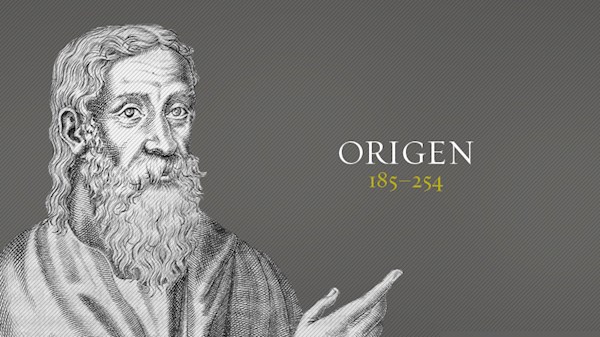
An example of an African Christian who shaped European (and global) Christianity before the advent of European missions to Africa and colonialism a millennium-and-a-half later
3. DECOLONIZING THE GOSPEL STORY
Every African Christian must own a copy of and read Oden’s ‘How Africa Shaped the Christian Mind.’ Early African Christians (as early as the 30s and 40s A.D.) and later on into the second to fifth centuries literally shaped Western Christianity before the latter turned round 1,500 years later to bring us a Gospel that was in Western garbs and made to look as if Jesus was ‘Made in the West.’ Know your history so that no one robs you of your salvation in Jesus Christ, which is for all people–every nation, tribe and tongue.
Even newer than Oden’s work is Bantu’s “A Multitude of All Peoples: Engaging Ancient Christianity’s Global Identity” (2020). In it he asserts how “Christianity is not becoming a global religion. It has always been a global religion. The early Christian movement spread from Jerusalem in every direction, taking on local cultural expression all around the ancient world.” And asks, “So why do so many people see Christianity as a primarily Western, white religion?”
When people, out of arrogance or ignorance, tell Africans like me that “Christianity is the white man’s religion”, I laugh on many levels: anthropological, historical, missiological, scriptural, theological… I wish I had the time to chase all those assertions and their originators. The fact that I do not always respond should not be misconstrued as I have no cogent answers.
Even without going into the MANY Scriptural references to Africa(ns), I can think of African Christians in the last 2,000 years who have shaped Christianity like Athenesius, Anthony of Egypt, St. Augustine (from Algeria), Justin, Clement, Origen (picture above) etc. In fact, even the term ‘Trinity’ was coined by an African called as Tertullian (from Tunisia). He is the same guy who gave us the designations of Old and New testaments.
Origen, for example, “was incomparably the greatest scholar and theologian of the Eastern Church in the early centuries as well as a prolific writer. His learning and his works were encyclopaedic. He is reputed to have written about 6,000 books. The first scientific theologian, Origen was a man ahead of his age, particularly in terms of Biblical scholarship and criticism” (Dictionary of African Christian Biography). Make the time to visit the Dictionary of African Christian Biography, and be inspired by the stories of ancients through martyrs and missionaries to nationalists. ALL AFRICAN.
TIME TO COOL OFF WITH A SIP OF GLORIOUS PALM WINE
I like how intelligent contemporary Africans are asking intelligent questions about culture and faith. May it go with an attendant desire to learn proper history and with discernment to extract the pure Gospel from its various cultural entrapments. The Gospel of Jesus Christ is good news for ALL people–EVERY nation, tribe and tongue!
It takes both.
Leadership takes both being and doing, identity and purpose, character and charisma. In fact, who we are is even more important than what we do, for the latter flows from the former. To lead well it takes both. Always. One without the other is dead on arrival.
A royal train,
Lord,
more scintillating
than jewelled enamel.
Look,
now I spread it in a wheel.
I must say I derive
some satisfaction from my good looks.
My feathers
are sown with eyes
admiring themselves.
True,
my discordant cry shames me a little–
and it is humiliating to make me remember
my meager heart.
Your world is badly made,
if I may say so:
the nightingale’s voice
in me
would be properly attired–
and soothe my soul.
Lord,
let a day come, a heavenly day,
when my inner and outer selves
will be reconciled
in perfect harmony.
Amen.
(‘The Peacock’ by Carmen Bernos de Gasztold, The Creature’s Choir, trans. Rumer Godden).
COVIDicTimes: Building to last in a pandemic
Everyone knows this is a hard time to live and even more so a jolly harder time to lead. A couple of thoughts and tools have been most helpful in my own leadership struggle to survive the pandemic and tussle to thrive beyond it.

Surviving and even thriving in the very place of crisis (Photo credit: accdocket.com)
This is worth repeating although people in my circles might be tired of hearing me sound like a broken record: a pandemic is a terrible thing to waste. It tends to be once-in-a-lifetime, nay, once every 100 or so years, for crying out loud! That notion of not squandering the opportunity in crises was most eloquently quipped in recent years by Stanford economist Paul Romer at a venture-capitalist meeting in November 2004 in California when he said, “A crisis is a terrible thing to waste.” According to the The New York Times Magazine, “he was referring to the increasing competition that America faces from rapidly rising education levels in other countries.” How much more COVID-19!
As a leadership practitioner in the global sphere, I’ve found myself in various groups discussing both gut reactions and measured responses to the pandemic. I have been particularly intrigued by the notion that COVID-19 is not just a passing blizzard but a long winter, even possibly a mini ice-age. I first heard it from my mentor of nearly 20 years who is currently the Finance Minister of the Republic of Ghana, Ken Ofori-Atta. In his Financial Times article that prayerfully ponders a restoration of GDPs to structural changes that need to happen from digitalization to debt issues, he prophesies: “This is not a passing blizzard, as a friend said; more like a long winter, even a mini ice age.”
Similar words were used by Andy Crouch et al. In summarizing their Leading Beyond the Blizzard: Why Every Organization is Now a Startup article, the above words from Ofori-Atta were echoed: “The novel coronavirus is not just something for leaders to “get through” for a few days or weeks. Instead, we need to treat COVID-19 as an economic and cultural blizzard, winter, and beginning of a “little ice age” — a once-in-a-lifetime change that is likely to affect our lives and organizations for years.”
So how do we live and lead (tactics) in the immediate to survive the vagaries of the current season yet be and do in a way that enables us to thrive beyond the pandemic (strategy). I’ve found the following thoughts and tools most helpful.
1. TRIAGE TO LIVE THROUGH THE PANDEMIC
As a Ghanaian, the month of May holds both the joys of May Day (workers’ holiday; equivalent of Lab(o)ur Day) and the pains of the May 9 stadium disaster that took the lives of 126 people in 2001. As all hands were called on deck that fateful day, ordinary folks drove to my medical school to implore medical students to come over and do whatever we could to help salvage endangered lives from the stampede that had ensued at the capital’s stadium. One of the necessary evils of medical practice is triaging in disaster. This is “the assignment of degrees of urgency to wounds or illnesses to decide the order of treatment of a large number of patients or casualties.” The word “triage” for grouping patients based on the severity of their injuries and the likelihood of their survival comes from the French word “trier” which means “to sort.” As a doctor I can tell you that usually it’s not the ones shouting the loudest that need the most urgent care but often the ones dying slowly in silence, perhaps haemorrhaging away.
What has this got to do with leading well in this COVID-19 pandemic? Well, while the mission of your organization wouldn’t change; your methods not only can, they should. The pandemic offers the kairos moment and clarity to triage, to sort through what must be given urgent care or otherwise. There are things that should become even more of a priority now in this pandemic; some that have emerged out of the blue and others that should be honoured as having served their purpose and honourably let go.
I have personally found the following ‘Strategy Triage Tool’ introduced in an April 30 Vision Synergy online workshop I was in most helpful. Hope you do too.
2. INNOVATE TO OUTLIVE THE PANDEMIC
“Necessity is the mother of invention,” so the old adage goes. And indeed, when the need for something becomes imperative, human beings are forced to find ways to get things done in a manner they wouldn’t have otherwise without this compelling force. I have witnessed more appropriate technological innovations on the African continent since the COVID-19 pandemic than I have my whole life!, everything from solar-powered soap-dispensing hand washing sinks through contact tracing mobile apps to pool testing of lab samples for coronaviruses. In the various organizations I’m a part of, I’ve seen many innovations things from cooking together in real time on Zoom to collaborative music videos of people continents apart.
 My excitement about crisis-birthed innovations was tampered though by wise words from my super smart fellow Fellow of the Africa Leadership Initiative (ALI), Bright Simons. Hear him: “Survival instincts do spur innovation during crises. But some crisis-spun innovations fail to position organisations well for the eventual recovery. For example, improved food canning and other preservation techniques became a mainstream strategy during World War II, but not the distributed “home canning” opportunities some, such as the Bernadin Bottle Cap Company, bet their fortunes on. The strong surge simply fizzled out in the post-war years. If an emergency forces new thinking that leads to new product and service lines, it may be worth your while to contemplate how you can “stretch out” the adaptive investments to sustain your edge into the recovery phase, with your primary focus on scaling when the constraints are less likely to lead to burnout.”
My excitement about crisis-birthed innovations was tampered though by wise words from my super smart fellow Fellow of the Africa Leadership Initiative (ALI), Bright Simons. Hear him: “Survival instincts do spur innovation during crises. But some crisis-spun innovations fail to position organisations well for the eventual recovery. For example, improved food canning and other preservation techniques became a mainstream strategy during World War II, but not the distributed “home canning” opportunities some, such as the Bernadin Bottle Cap Company, bet their fortunes on. The strong surge simply fizzled out in the post-war years. If an emergency forces new thinking that leads to new product and service lines, it may be worth your while to contemplate how you can “stretch out” the adaptive investments to sustain your edge into the recovery phase, with your primary focus on scaling when the constraints are less likely to lead to burnout.”
In demonstrating how we can “stretch out” the adaptive investments of COVID-19 so that our innovations can outlive the pandemic, Simons offers the illustration below.
The excellent COVID-19 analysis in this scenario planning PowerPoint by UC Berkeley professor Steven Weber and Arik Ben-Zvi (CEO of Breakwater Strategy) has also been a cherished gift. It is helpful that the duo have put a lot of thinking into various possible scenarios from total triumph to downright disaster, enabling leaders to conserve our energies to take care of the resulting so whats and then what’s for our own contexts and constituencies. Cross out America and the tool is pretty good for anywhere in the world that has been hit by COVID-19, which is everywhere.
FINALLY
So yes, any crisis is a terrible thing to waste, especially a pandemic of current proportions. In our bid to live and lead, may we do so well in order not only to merely survive the moment but to even outlast it. May posterity arise and salute the Covid-containing and Covid-conquering champions that we are, in the making.
Lead Different.
There are many commonalities between leadership in general and Christian leadership in particular. There are stark, even diametrically opposed, differences too. The primary source of power to influence is one of them; and it is everything!
My heart skipped a beat. Jerry, who has had enough of Christian leadership nonsense of late, was passionately shaming some unnamed pastors for preaching from Robert Greene’s 1998 bestseller The 48 Laws of Power. I began to wonder: were these pastors comparing and contrasting Greene’s ‘laws’ with biblical principles of leadership and telling Christ followers “not so with you” or were they actually promoting the former?
I own a copy of the said book, one of over 1.2 million copies sold in the United States alone and translated into 24 languages. Fast Company called the book a “mega cult classic.” You see, I have been a student of leadership for some 20 years, informally, semi-formally and formally. In fact, just this weekend I received in the mail my official Master of Arts in Global Leadership certificate from Fuller Theological Seminary after a transformational three-year journey.
My bookshelves are loaded with all sorts of leadership books: the good, the bad and the ugly. I search for principles, those timeless, universal laws that are true for any people in any sphere of life in every age. So in Physics, for example, the law of gravity holds true wherever you are irrespective of gender, race, religion, creed or social status. Similarly, there are leadership principles that are timeless and universal truths like the laws of influence, the requirement of vision and mission (picture of the future, destination, direction, objective, goals) and absolute need for clear communication.
“NOT SO WITH YOU”
These things just listed, if we were to draw a Venn diagram of A. General leadership and B. Christian leadership, will be found in the area of intersection (AB) as illustrated below.
Having said that, there are things that are characteristic of General leadership that cannot be true of Christian leadership and vice-versa. For example Greene’s Law 15 is “Crush your enemy totally” (2002, 57); “But I [Jesus] say, love your enemies! Pray for those who persecute you!” (Matthew 5:44) When I think of the guy who falsely accused me of assault and wasted my time, energy and $15,000 in legal fees there is no doubt I prefer Greene’s Law 15; leading Christ’s way is hard.
Jesus Christ himself minced no words that some things are different in His Kingdom. He once said about power, when Mrs. Zebedee came to lobby for his two sons James and John to hold key positions in His Kingdom: “You know that the rulers in this world lord it over their people, and officials flaunt their authority over those under them. But among you it will be different. Whoever wants to be a leader among you must be your servant, and whoever wants to be first among you must become your slave. For even the Son of Man came not to be served but to serve others and to give his life as a ransom for many” (Matthew 20:25-28, NLT, emphasis mine).
THREE POWER BASES
“But among you it will be different.” It cannot be clearer than that: there are exclusives when it comes to Christian leadership and Christ followers shouldn’t fool themselves. Bobby Clinton’s extensive leadership research resulted in the observation that a person’s influence has three different sources or what he calls “power bases” which refers to “the source of credibility, power differentials, or resources which enables a leader to have authority to exercise influence on a follower” (2001, 439). The three different kinds of power bases are positional, personal and spiritual.
1. POSITIONAL POWER–this is influence exercised because of one’s position or title in society or an organization. It is extrinsic and only works because it has been granted by those with even greater authority eg. CEO appointed by a Board. People may submit because of hierarchy; but not because they have really granted the leader permission to influence them beyond that context. In his New York Times bestseller, The 5 Levels of Leadership, John C. Maxwell is unequivocal that “position is the lowest level of leadership–the entry level. The only influence a positional leader has is that which comes with the job title. People follow because they have to” (20011, 7, emphasis mine). This is is Level 1, ground floor. I worry when Christian leaders jostle for positions like bishop and archbishop and will kill over titles like ‘Rev. Dr.,’ ‘Very Rev.,’ ‘Major Prophet’ and ‘Apostle General.’ Christian leaders should examine their motives and check their shadows (a.k.a. false self) why they crave these positions and titles. The recent rush for cheap doctorates is a disgrace to Christ’s church! It is a sign of deep sickness which needs strong medicine. Only the true and pure Gospel fully applied by the power of the Holy Spirit can cure this.
2. PERSONAL POWER–this is influence exercised through a person’s mix of personality, charisma, connections, knowledge, character, skills, expertise, access to info, networth and behaviour. This is the bread and butter of the multi-million motivational industry. It’s mostly about increasing personal power. In summary, “this kind of power depends on the confidence and trust a person generates from the people he or she is attempting to lead” (Reese & Loane 2012, 116). Here, people grant you permission to lead them because of who you are, what you do (or have done), what you represent and how much you mean to them. So Maxwell’s Level 2 is Permission, Level 3 Production, Level 4 People Development and Level 5 Pinnacle (which is developing other leaders to Level 4). While all these elements of personal power are somewhat more intrinsic than positional leadership, and that may be the ceiling for the rest of the world, for the Christian leader even this will not suffice. I find many Christian leaders trying to better themselves and polish their craft to gain more influence. This is better than just positions and titles and hierarchy; but it still isn’t best. Even Maxwell’s Level 5 which he calls ‘the Pinnacle’ isn’t really the highest point for Christian leaders.
3. SPIRITUAL POWER–finally, this is influence exercised because of the perception of the person’s spiritual authority. Again, according to Reese & Loane, “The followers recognize evidence of a close relationship with God and see the leader as credible and trustworthy because of his or her apparent close relationship with God” (2012, 116). I find it curious that words like ‘perception’ and ‘apparent’ are used because people can fake this or even go for a false version of spiritual power from the occult. Again, the numerous emerging testimonies of ‘pastors’ going for occult powers to influence people is heart-breaking. It is pure evil; anti Christ. Effectual Christian leaders, whose being and doing counts on earth and in heaven, value spiritual authority as their primary power base. Again Reese & Loane say, “And this spiritual authority flows out of a deep concern for and commitment to intimacy with God and a life lived with integrity. Their influence does not exclude personal or positional authority, but these power bases become secondary. Over time, their communities increasingly recognize their lives as characterized by spiritual power and authority.” (2012, 116). We have a problem, a big problem, when Christian leaders and pastors depend more on positional and personal power than spiritual power.
CONCLUSION
It is no wonder then that “the people who know their God shall be strong, and carry out great exploits“ (Daniel 11:32b, KJV, emphasis mine), including resisting the smooth talking of those who oppose Christ and His cause. They have spiritual power, and that is everything. Not everything leadership is great or even good for the Christian leader. O for prudence, wisdom and discernment to value what counts in Christ’s marking scheme! For the Christian leader, positional power is good. Personal power is better. “Every good and perfect gift is from above.” But the greatest and best is spiritual power.
References
Clinton, Robert J. 2001. Clinton’s Biblical Leadership Commentary Series, Commentary CD vol. 2. Altadena, CA: Barnabas.
Greene, Robert and Joost Elffers. 2002. The 48 Laws of Power. London: Profile Books.
Maxwell, John C. 2011. The 5 Levels of Leadership. New York, NY: Hachette Book Group.
Reese, Randy D. & Robert Loane. 2012. Deep Mentoring: Guiding Others on Their Leadership Journey. Downers Grove, IL: InterVarsity Press.
COVIDicTimes~Vaccine Found: Hope!
Often we’re quick to run to faith, which is “confidence in what we hope for,” but hope in and of itself is pretty powerful; especially in a crisis of the sort we’re stewing in, a pandemic pot.
Hope is a powerful thing. I remember walking through bookstore after bookstore in New York City, scrambling. Scrambling not for hope per se but for the Audacity of Hope, both literally as in Obama’s book and figuratively. The year was 2008. I was on a short break from my service with the United Nations Operation in Cote d’Ivoire to attend a seminar at The Aspen Institute and to visit my wife pursuing her master’s at McGill University. And hope was rising as it seemed possible, plausible, that the United States of America could very well have a Black president in a few short days. H-I-S-T-O-R-Y. The hope was palpable as I walked on Broadway on Election Day and mingled among the crowds at Times Square where CNN had pitched camp. Hope became faith and I couldn’t believe my eyes later that night as faith became sight!
Hope is often treated like the ugly step sister of faith; but no. Hope per se is very beautiful and powerful and can hold her own. It may not get the same ‘likes’ as faith but I would say hope actually is the mother of faith, no matter how unimpressive. Without hope it is impossible to have faith. But forget famous faith for now; let’s just look at raw hope.
Everyone is waiting for the COVID-19 vaccine. I say it has already been found. It is hope. Hope in this time of crisis. One of my greatest encouragements during this COVID-19 pandemic has been a reading Fellows of the Africa Leadership Initiative (ALI), of The Aspen Institute, mulled over last month: Václav Havel’s “HOPE.”* Soak this in:
” . . . [T]he kind of hope I often think about (especially in situations that are particularly hopeless, such as prison) I understand above all as a state of mind, not a state of the world. Either we have hope within us, or we don’t. . . . Hope is not prognostication. It is an orientation of the spirit, an orientation of the heart. It transcends the world that is immediately experienced, and is anchored somewhere beyond its horizons. . . . I feel that its deepest roots are in the transcendental, just as the roots of human responsibility are, though of course I can’t – unlike Christians, for instance — say anything about the transcendental. . . .
“Hope, in this deep and powerful sense, is not the same as joy that things are going well, or willingness to invest in enterprises that are obviously headed for early success, but rather an ability to work for something because it is good, not just because it stands a chance to succeed. The more unpromising the situation in which we demonstrate hope, the deeper that hope is. Hope is not the same thing as optimism. It is not the conviction that something will turn out well, but the certainty that something makes sense, regardless of how it turns out. In short, I think that the deepest and most important form of hope, the only one that can keep us above water and urge us to good works, and the only true source of the breathtaking dimension of the human spirit and its efforts, is something we get, as it were, from ‘elsewhere.’ It is also this hope, above all, that gives us the strength to live and continually to try new things, even in conditions that seem as hopeless as ours do, here and now.”
Think about those powerful words. Let them sink in. Let them strengthen your state of mind and bolster you in this crisis. Hope is powerful for any and every human alive with a beating heart, even if with lungs struggling from the stranglehold of SARS-CoV-2. Powerful; just powerful.
But unlike Havel, I as a Christian can say something about the transcendental roots of human nature and responsibility and hope. There is One who has the patent for the powerful vaccine against the COVID crisis: GOD. One of his accolades is ” the God of Hope.” And as a doctor-turned-preacher, I join the lawyer-turned-preacher who said “faith is confidence in what we hope for” to pray thus: “May the God who gives endurance and encouragement give you the same attitude toward each other that Christ Jesus had, so that with one mind and one voice you may glorify the God and Father of our Lord Jesus Christ…. May the God of hope fill you with joy and peace as you trust in him, so that you may overflow with hope by the power of the Holy Spirit” (Romans 15:5-6, 13). Amen.
Now try that vaccine!
_______________
*From Disturbing the Peace: A Conversation with Karel Huizdala, 1987.
PS. The Ghana fellows of ALI are making hope real by raising money to provide much-needed PPEs for our frontliners in this ongoing COVID fight. Kindly go to our #MASKUP campaign on GoFundMe and give a dollar or two to keep hope alive. Together, “we shall overcome.” Thank you already!
It’s Mothers’ Day; not Women’s Day. Come on!
No! Today isn’t Women’s Day; that’s a different date. It is Mothers’ Day. Not every woman is a mother but every woman can, and should, be.
So everything should somehow work okay for everyone all at once so that in the end nothing means anything to anyone anymore? Political correctness will kill us if we allow it. It may sting but hear this: not every woman is a mother. Of course we want to be respectful of all people and not go out of our way to hurt the feelings of others if for whatever reason Mothers’ Day evokes emotions of pain or loss or insufficiency or whatever else. But please, let’s not minimize Mothers’ Day by turning it into Women’s Day. It’s a significant sacrifice to mother! Why do you think 125,000 babies are aborted every single day in our world?! Let’s accord those who make that sacrifice to mother, whether by biological birth, foster/adoptive parenting, spiritual direction or social mentoring, the love and respect they‘ve earned!
THE MOTHER OF MY CHILDREN
The mother of my six children deserves praise, having carried each of these in her womb for nine months and pushed them out one by one (no twins). With the toll pregnancy, parturition and parenting have had on her body and soul and strength and mind, she’s gone over and above just being a woman. Anyele is a mother who deserves her accolades.
I remember her attempting a PhD while carrying our second child. She gave birth to Ashede on a Friday (I can never forget), had papers to review over the weekend and had to be back in class by Tuesday (she was a student as well as a teaching assistant and a research assistant). As a first class graduate in Economics with two additional qualifications in Statistics and ACCA (the British equivalent of CPA) simultaneously, and clearing her Masters in Economics at McGill University within a year, she certainly had all that it took. But now her professors were dubiously asking, “why do you want a PhD?” In the end, after a year in the programme and flunking her comprehensive exams she had to exit the PhD in Economics. Of course we both knew it wasn’t for lack of competence.
Apart from the wifely and motherly tolls, she herself had lost interest in Economics at that level. It wasn’t what she had anticipated. She really wanted to make an entrepreneurial difference. She since turned her attention to financial consulting and then set up a number of real estate investment companies with properties in three countries on two continents, including AirBnBs (she’s set up 10 of them from scratch). She mainly works on these things in the afternoons and evenings while she homeschools our children in the mornings. In all of this, I haven’t even started talking about the many people she mothers through mentoring whether in our home or at church (children’s service) or lately with PerbiCubs Library Services. Last week, I watched in amazement as the children in the reading programme clocked a total of 20, 138 minutes of reading! She’s mothering scores of children she did not bear in her own womb from 60 different schools across Ghana by mentoring them with her fabulous team.
Yesterday, even from Ghana, she spent over three hours with me (in Canada) on the phone planning what next week’s homeschooling should look like, guiding me textbook by textbook, workbook by workbook, page by page on WhatsApp. Not every woman would do that. She’s a mother. Happy Mothers’ Day, Anyele.
MOTHER MINE
I was a Caesarian baby. An emergency Caesarian at that. At the point of birth, I was in a vaginally ‘undeliverable’ posture, one that is technically known as a “face presentation.” After pummelling my face against my mother’s pelvis enough, Dr. Ampofo made the right call: “let’s cut her up!” The young, expectant mother who carried me in her womb while rounding up her Master’s degree in 1978, was so scared to death that she would lose her first child as her own mother Lily Nketia had. She whispered a desperate Hannah-like prayer to the Lord of life: “LORD, if you would spare this child I will offer him back to You to serve You for the rest of his life.” Go figure how come I do what I do now!
Although in academia, my mother resolved she wouldn’t ‘progress’ at the expense of her four children. She decided not to start her PhD until her youngest had reached Junior High School. She isn’t stupid; she is a mother. I was old enough to type her PhD thesis. She became Dr. Akosua Perbi only around the age of 50 and remained ‘stuck’ as senior lecturer for eons while she not only mothered her biological children but thousands more. Go and ask and you will be told. They called her “the people’s mother” on the University of Ghana campus, students and staff alike. As if to bless her with a photo finish, she became Professor Akosua Perbi barely a few days to her official retirement at 60! Why? She is a mother.
Some of her women colleagues became professor faster in the academy or earned millionaireship in the corporate world but in the end not only are all her children firm in their Christian faith (by God’s grace) and in great social standing making global impact, she is still a Fellow of the Ghana Academy of Arts & Sciences (which her father was a founding fellow of) and an erudite professor with global acclaim in slavery history. You see, in the end she ‘had it all’, but not all at once.
MOTHER OF MOTHERS
I could speak similarly of the mother of my children’s mother. I find it hard to call Mama Norah my ‘mother-in-law.’ She really is my mother. She also made immense sacrifices as the biological mother of Anyele and her two brothers. Life totally changed when she was well on course to become one of the first and youngest chartered accountants and partner in an accounting firm in Ghana way back in the late 1970s. Alas, Mama Norah spent a long winter of motherhood making her complete her chartered accountancy journey only about 14 years ago. I remember clearly because I was at her final graduation ceremony as an adult, when Anyele and I were courting.
Check this out. My sister Amma just received a relatively long message part of which said, “Awww what a mother, friend, sister and a gud [good] wife. A mother who always wants to see her children happy. You always think about me. You want to see [us] go far in life. You make me happy when I am sad… Today we all the children stent [stand] up to say ayekooooo.👏👏👏👏 we love you😘😘 God bless you.” Now what you might not know is that the young lady who sent this to Amma, who is herself a mother now, was Amma’s first and longest-serving house help. “It is remarkable that she wrote this all by herself,” my brother-in-law Frank comments, “because I remember when she came she did not know the English alphabet. She learnt it in our house. We thank God for this.” Amma is a mother of mothers. Time won’t allow me to get into her mothering of scores of children through an Awana Club she pioneered in her residential area!
Even if Amma did not have biological children of her own, what a mother she would still be! For my other sister and two sisters-in-law who have no biological children yet, I want to especially bless them today for MOTHERING MANY still, from their own nephews and nieces to teaching children’s Sunday School and such. They are blessed mothers already! Surely, not being a mother by biological birth should not be an issue! Mother by mentoring!
WINDUP
One is free to choose career over family, body looks over pregnancy, or even wealth over children. Simply being human gives us that divine gift of choice. Some people marry their professions and give birth to accolades and wealth and despise others who sacrifice to mother. Then on a day like this too they want to steal the shine of those who mother others by minimizing it to ‘Women’s Day’ instead of the Mothers’ Day that it really is? No way! Not every woman is a mother but every woman can (and should) be a mother—by birthing, fostering, adopting and/or mentoring others. BLESSED MOTHERS’ DAY to all mothers, especially mine!



